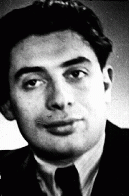You searched for: University%20of%20Oklahoma%EF%BF%BD%EF%BF%BD%EF%BF%BD%EF%BF%BD%EF%BF%BD%EF%BF%BD%EF%BF%BD%EF%BF%BD%EF%BF%BD%EF%BF%BD%EF%BF%BD%EF%BF%BD%EF%BF%BD%EF%BF%BD%EF%BF%BDWeChat%EF%BF%BD%EF%BF%BD%EF%BF%BDaptao168%EF%BF%BD%EF%BF%BD%EF%BF%BDEAFBJM58
<< Previous | Displaying results 101-125 of 315 for "University%20of%20Oklahoma%EF%BF%BD%EF%BF%BD%EF%BF%BD%EF%BF%BD%EF%BF%BD%EF%BF%BD%EF%BF%BD%EF%BF%BD%EF%BF%BD%EF%BF%BD%EF%BF%BD%EF%BF%BD%EF%BF%BD%EF%BF%BD%EF%BF%BDWeChat%EF%BF%BD%EF%BF%BD%EF%BF%BDaptao168%EF%BF%BD%EF%BF%BD%EF%BF%BDEAFBJM58" | Next >>
-
Stefan Zweig
ArticleStefan Zweig was a prolific author and one of the most popular writers of the interwar period. His work was burned in Nazi Germany in 1933. Learn more.
-
Theodore Dreiser
ArticleTheodore Dreiser was an American author of naturalist fiction. Censorship and bans accompanied him all his life. His works were burned in Nazi Germany in 1933.
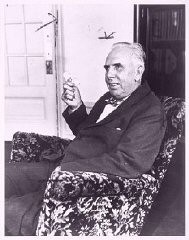
-
Thomas Mann
ArticleThomas Mann was a German author who won the Nobel Prize for Literature. His political writings were burned during the Nazi book burnings of 1933. Learn more.
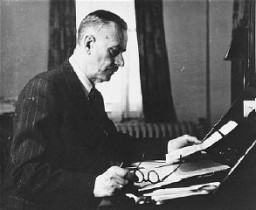
-
Upton Sinclair
ArticleUpton Sinclair was an American author whose works exposed social injustice and economic exploitation. His works were burned in Nazi Germany in 1933. Learn more.
-
Portrait of Helen Keller
PhotoPortrait of Helen Keller, seated, reading Braille. September 1907. In 1933, Nazi students at more than 30 German universities pillaged libraries in search of books they considered to be "un-German." Among the literary and political writings they threw into the flames during the book burning were the works of Helen Keller.
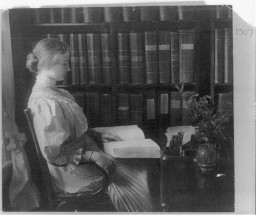
-
Holocaust Denial: Key Dates
ArticleBrowse a timeline listing some key events in the evolution of Holocaust denial and the distortion of the facts of the Holocaust.
-
Natzweiler-Struthof
ArticleThe Nazis opened the Natzweiler-Struthof concentration camp in 1941. Learn more about the camp, its prisoners, and forced labor and medical experiments.
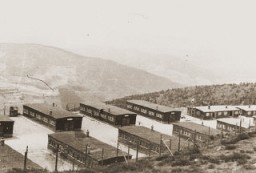
-
Theresienstadt: Cultural Life
ArticleDespite terrible living conditions and the constant threat of deportation, there was a highly developed cultural life in the Theresienstadt camp-ghetto. Learn more.
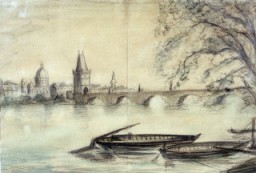
-
Erich Maria Remarque
ArticleErich Maria Remarque wrote the classic novel “All Quiet on the Western Front,” which became a Hollywood film. His works were burned under the Nazi regime in 1933.
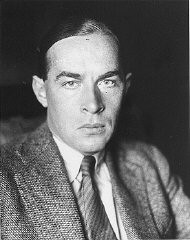
-
German Resistance to Hitler
ArticleDespite Hitler’s popularity, there was also opposition. Learn more about German resistance, which ranged from non-compliance to assassination attempts.
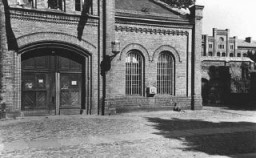
-
Salonika
ArticleSalonika, Greece was invaded and occupied by the Nazis in 1941. Learn more about the fate of the Jews in Salonika during World War II.
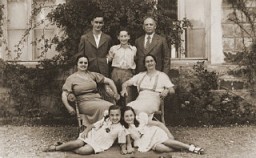
-
Franz Werfel
ArticleFranz Werfel was an Austrian poet, modernist playwright, and novelist. Several of his works were burned during the Nazi book burnings of 1933. Learn more.
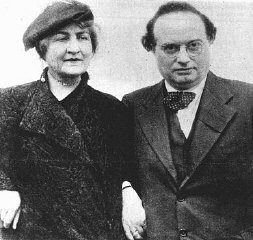
-
Silvio Ortona
ArticleRead the Jewish Partisan Educational Foundation's short biography of Silvio Ortona.
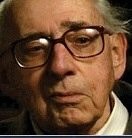
-
Ernst Gläser
ArticleErnst Gläser wrote the antiwar novel "Jahrgang 1902." His works, considered leftist and anti-fascist, were burned in Nazi Germany in 1933. Learn more.
-
Emil Ludwig
ArticleEmil Ludwig was a liberal journalist and popular biographer whose works were burned under the Nazi regime in 1933. Learn more.
-
Anna Seghers
ArticleAnna Seghers was an influential, antifascist author. Her novel, in which she spoke out against social injustice, was burned in Nazi Germany in 1933. Learn more.
-
Walther Rathenau
ArticleWalther Rathenau was a liberal democratic politician and the first Jew to hold a cabinet post in Germany. His books were burned in Nazi Germany in 1933. Learn more.
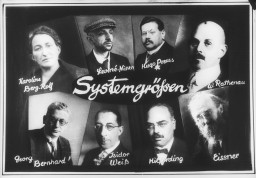
-
American Student Reflects
Timeline EventNovember 11, 1938. On this date, Robert Harlan wrote about what he witnessed during Kristallnacht.
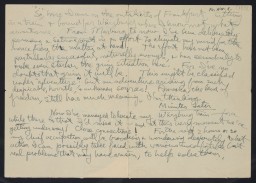
-
The 104th Infantry Division during World War II
ArticleThe 104th Infantry Division participated in major WWII campaigns and is recognized for liberating the Dora-Mittelbau concentration camp in 1945.
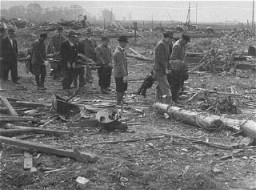
-
The 95th Infantry Division during World War II
ArticleThe 95th Infantry Division participated in major WWII campaigns and is recognized for liberating Werl, a prison and civilian labor camp, in 1945.
-
Joseph Goebbels
ArticleJoseph Goebbels, Nazi politician, propagandist, and radical antisemite, was Reich Minister for Propaganda and Public Enlightenment from 1933 until 1945.
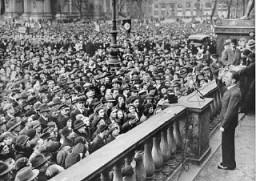
-
Erich Maria Remarque: In Depth
ArticleIn 1933, Nazi students at more than 30 German universities pillaged libraries in search of boo...

-
American Foreign and War Correspondents
ArticleLearn about US journalists, including Edward Murrow, William Shirer, and Dorothy Thompson, and their impact during the Nazi rise to power and WWII .
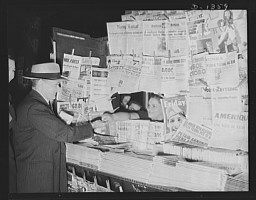
-
Vidkun Quisling
ArticleVidkun Quisling, Minister President of Norway from 1942 to 1945, was a Norwegian fascist and Nazi collaborator. His last name has come to mean “traitor” or “collaborator.”
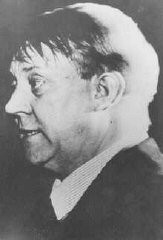
-
Eugeniusz Rozenblum
ID CardEugeniusz's parents married in 1922 in the Soviet Union, where his father owned a textile mill. Fearing arrest by the Soviets for being "bourgeois," Eugeniusz's parents fled to Poland, where Eugeniusz was born. 1933-39: Eugeniusz was a secondary school student and was preparing to enter university, either in Poland or at the Hebrew University in Palestine. The German occupation of Lodz in September 1939 interrupted his schooling. One month after the occupation, a German soldier came to his family's door…
